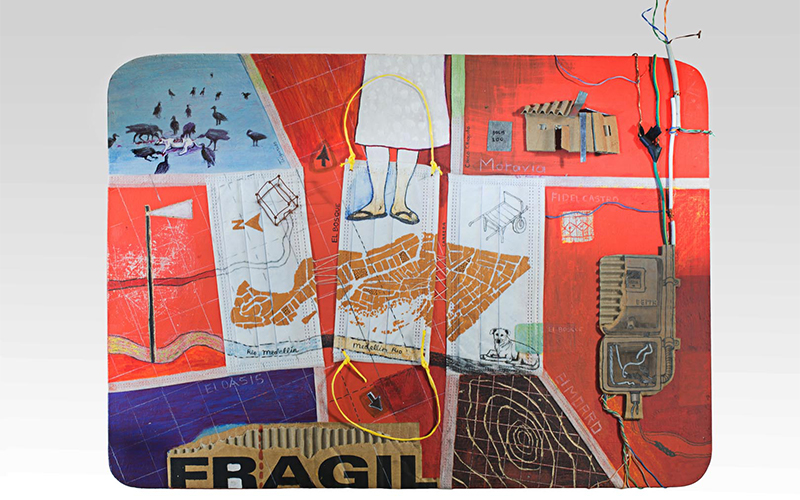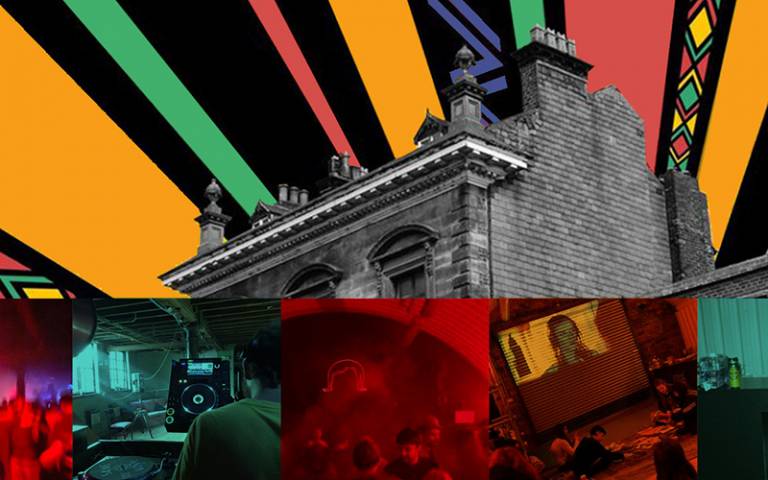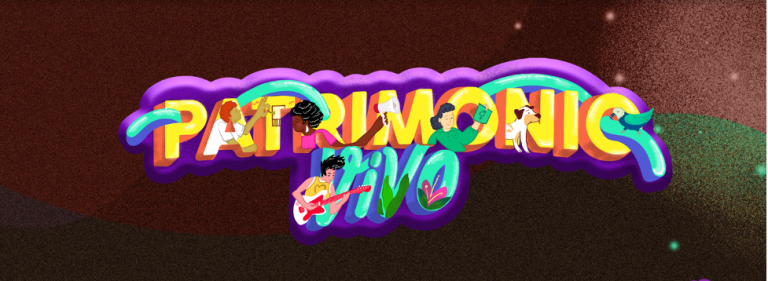Living Heritage
A cultural project encompassing teaching, research, activism, co-creation, community memory, and lived experience conducted within DPU and with partners globally.

11 January 2021
Living heritage is a concept that has come out of critical heritage studies, where scholars noted that ‘heritage’ is a constructed ‘status’ based on exclusion, selection, and particular forms of representation of the past. Heritage construction has often focused on the built form, at the expense of leaving out intangible heritage and everyday life of communities.
Critical heritage studies have pushed for broadening ideas of heritage and in particular understandings of intangible heritage, encouraging recognition of continuity as well as mutability of communities and practices. In exploring living heritage in Latin America and South East Asia we bring together diverse teams, networks, and even temporalities, borrowing from principles of comparative urbanism to decolonize the notion of ‘heritage’ by reframing it as a process grounded in the everyday practices of communities.
Image credit: Dubian Monsalve, Mapa frágil de la esperanza
Sheffield Otherwise: Counter-Mapping Living Heritage of Diaspora and Queer Communities

- Outline
Sheffield Otherwise is a collaborative research-design project that proposes a counter mapping approach to reveal the living heritage of diaspora and queer communities in Sheffield that have been left out from official heritage narratives, urban policies and public space representations. Such official narratives tend to reproduce hetero patriarchal and racist assumptions. In times of reckoning with racial justice and gendered oppressions, collectively documenting living heritage of diaspora and queer communities is central to make visible the continuation of communities’ intangible connection to place, rather than the preservation of urban fabric for itself which is central to their claims for spatial justice.
The Sheffield Otherwise project has two aims:
1. To learn from diasporic and queer communities’ legacies and stories to question traditional practices of urban design which often lacks understanding of the spatial heritage of diverse communities.
2. To challenge narratives about stigma by focusing on the living heritage of diaspora and queer communities around the continuities of systems of care, community connections, livelihoods & identity and memory.
- Team
Through learning alliance, Sheffield Otherwise promotes the interaction of multiple actors, as learners, with multiple knowledges as a strategy to deal with the complexity of the production of space. The main BUDD partners of this project are:
Sadacca - a multi-use space and inclusive association providing support to the African Caribbean community of Sheffield and district
Gut Level - a queer-led DIY event space and collective that focuses on dance music, club culture and the surrounding communities.
Resolve Collective - an interdisciplinary design collective combining architecture, engineering, tech and art to address social challenges.
- Main activities
- BUDD PE "Sheffield Otherwise" during the 11-19th of May appears in Sheffield news. Talk with Programme Leader Catalina Ortíz, BUDD students and Resolve Collective.
- During the 9 days of the fieldtrip to Sheffield, several public engagements were arranged with stakeholders and project partners. These public events were moments of listening, expanding crucial ideas of the project. Some of these events invited local artists, poets and storytellers.
- Outputs
Yangon Stories. Framing Living Heritage as Tool to Prevent Spatial violence
- Outline
Yangon Stories aims to frame the potentials of a living heritage approach to informal settlements to challenge existing dynamics of spatial violence in Yangon in order to mobilize more inclusive urban planning practices. This project brings a unique perspective to the intersections of heritage, violence and dignity by linking spatial violence trajectories with situated storytelling about heritage-making. We view forms of contestation and agency of informal dwellers facing evictions and resettlement as counter practices of living heritage.
In this project we aim to:
- Foster multi-disciplinary and collaborative research designed to transform understanding of the causes, impacts and legacies of spatial violence;
- Develop relevant collections of archival, oral, ethnographic and other sources, from policymakers, women’s groups, communities, and local leaders;
- Develop theoretical frameworks and methodological innovations to contribute substantive insights into heritage-making practices as forms of countering violence, informing broader understandings of community-led conflict prevention strategies.
- Team
Yangon Stories is a collaborative project between Development Planning Unit: Dr. Catalina Ortiz - PI; Dr. Giovanna Astolfo; Prof. Camillo Boano; Dr. Elizabeth Rhoads; and local researchers and partner organisations.
Funding: The project is funded by British Academy through its Heritage, Dignity and Violence programme
- Main activities
- Kickstart Workshop – February 3-7, 2020
DPU Fellowships 2020
Chauncie Bigler. Framing the Living Heritage Approach for the Periphery: Constructing Place, Space, and Community in Yangon, Myanmar
Naiara Yumiko Murakami Dutra da Costa. Building epistemic designs: decolonial cartography as a tool to subvert forced evictions infrastructure
DPU Fellowships 2021
Roisin McNamara, Spatial violence through modes of dispossession: A study of vulnerability and climate change adaptation in Yangon
DPU Fellowships 2022Maki Saso, Contributions of squatter settlements amid expanding enclave urbanism in Hlaing Thayar, Yangon
Sawa Shiroma, Urban Transformation and Spatial Violence through Capital Accumulation in Yangon
Higa Akemi, Living Heritage as a narrative shift for liberation: Civic disobedience practices to oppose spatial violence in Yangon
Webinar - Stories of Spatial Violence in Asian Cities - Jun 10, 2022
- Outputs
Yangon Stories Website - https://www.yangonstories.com/
(Yangon Stories, 2022). Stories of Displacement from Yangon (Burmese)
(Yangon Stories, 2022). Stories of Displacement from Yangon (English)
Kolovou Kouri, M. (2022). Locating living heritage in Yangon’s informal housing practices. DPU Blog
Roberts, J.L. & E. Rhoads. (2021). Myanmar’s hidden-in-plain-sight social infrastructure: Nalehmu through multiple ruptures. Critical Asian Studies
Kolovou Kouri, M. & Sakuma, S. (2021). Community-led housing in Yangon: An assessment of the Mae Myit Thar project.
Kolovou Kouri, M., Sakuma, S., Oritz, C., Astolfo, G & Rhoads, E. (2021). Trajectories of spatial violence in Southeast Asian cities. DPU Working Paper Series (207), London. ISSN: 1474-3280
Rhoads, E., Sakuma, S., Ortiz, C. (2021). Violations of the Right to Adequate Housing after the Coup. Policy Paper.Rhoads, E. (2020). Property, Citizenship, and Invisible Dispossession in Myanmar's Urban Frontier. Geopolitics.
Astolfo, G. & Boano, C. (2020). ‘Unintended Cities’ and Inoperative Violence. Housing Resistance in Yangon. Planning Theory & Practice.
Rhoads, E. (2020). ‘Informal (Justice) Brokers: Buying, Selling, and Disputing Property in Yangon'. in Kyed, H.M. (ed.), Everyday Justice in Myanmar: Informal Resolutions and State Evasion in a Time of Contested Transition. NIAS Studies in Asian Topics; No. 71. NIAS Press. pp.283-313.
Ortiz, C., & Lipietz, B. (eds.). (2020). Grounded Learning: people-centred approaches to housing in Yangon and Yogyakarta. London: University College London.
ResourcesOn Yangon urbanism, informal settlements, heritage, housing, spatial violence and history
Anonymous. (2021). An Initial Report on Forced Evictions of Squatters in Hlaing Tharyar during the Coup.
Asian Development Bank, ADB. (2019). Financing Affordable Housing in Yangon.
Boutry, M. (2017). Migrants Seeking out and Living with Floods: A Case Study of Mingalar Kwet Thet Settlement, Yangon, Myanmar. in: C. Middleton, R. Elmhirst & S. Chantavanich (eds.), Living with floods in a mobile Southeast Asia. A political ecology of vulnerability, migration and environmental change. pp. 42–62. New York: Routledge.
Campbell, S. (2019), Of Squatting amid Capitalism on Yangon’s Industrial Periphery. Anthropology Today 35, (6), pp. 7–10.
Patrimonio Vivo: Trajectories and Living Heritage

- Outline
How to frame self-built neighborhoods in Medellin as living heritage? What type of socio-spatial strategies can be imagined to respond to urban transformation? This teaching based project focuses on exploring living heritage through four thematic lenses: a) care systems, b) memory, migration and displacement, c) landscapes of recycling, and d) community communication. The main site of inquiry, Moravia, has been the laboratory of spatial interventions and has endured long-term eviction threats. The project wishes to rethink different urban futures for Moravia through a living heritage approach as a way to respond to those threats.
Every year, for four weeks, international students alongside partners and local communities, explore the vast spectrum of political issues working in the multidimensional field of urban development and socio-cultural heritage and investigate specific design strategies and interventions within existing governance structures and processes. In 2020 and 2021, students worked alongside communities in Moravia, Medellin, Colombia.
- Team/Learning alliance
Development Planning Unit: Dr. Catalina Ortiz; Dr. Giovanna Astolfo; Marisol Garcia; Moravia Cultural Centre; Moravia Resiste Collective; Cooperative Coonvite.
Funding: DPU Building and Urban Design in Development Master Programme
- Main activities
- DPU’s BUDD program collaborates with partners in Medellin to co-create a Living Heritage Atlas
- Broadcasting: Moravia and its living heritage – May 21, 2020
- UN Habitat praises the co-creating of a Living Heritage Atlas by MSc BUDD students and partners
- The Living Heritage Atlas in the Moravia Neighbourhood in Medellín, threatened by gentrification is an example of co-creation and resistance for the region
- Trajectories and Living heritage in Moravia, OPE 2021
- DPU’s BUDD program collaborates with partners in Medellin to co-create a Living Heritage Atlas
- Outputs
- Ortiz, C, Burgos, M.J. Y. (eds) (2020) Living Heritage Atlas | Atlas de Patrimonio Vivo: A Tool to Rethink Moravia's Future | Una Herramienta para Repensar el Futuro de Moravia
- Podcast: https://centroculturalmoravia.org/moravia-living-heritage-atlas/
- Song: Sueno de Dignidad
- Trajectories and Living Heritage, OPE 2021 Website and reports
- Ortiz, C, Burgos, M.J. Y. (eds) (2020) Living Heritage Atlas | Atlas de Patrimonio Vivo: A Tool to Rethink Moravia's Future | Una Herramienta para Repensar el Futuro de Moravia
 Close
Close


